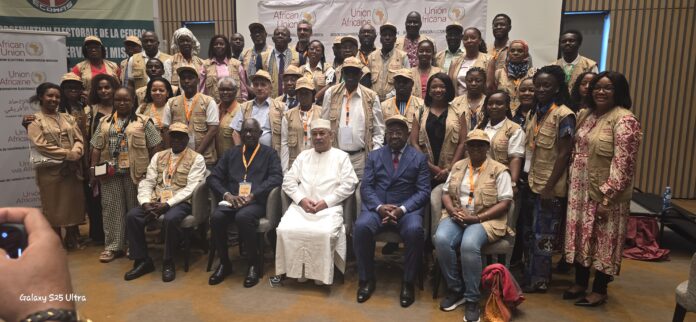The Joint Election Observation Mission (EOM) of the Economic Community of West African States (ECOWAS) and the African Union (AU) has issued its preliminary findings following Côte d’Ivoire’s presidential election held on October 25.
Led by former Nigerian Vice President Professor Yemi Osinbajo, the mission deployed 251 observers from 28 African nations. The team was present in the country from October 2 through the conclusion of key electoral phases.
The mission praised the peaceful conduct of the election, describing the atmosphere as calm and orderly. However, it identified operational shortcomings and political concerns, including polling delays, compromised ballot secrecy, insufficient provisions for voters with disabilities, and lack of training among polling staff. The mission also highlighted tensions surrounding the disqualification of prominent opposition candidates by the Constitutional Council, citing sponsorship requirements. Only five candidates were ultimately approved to contest the election, highlighting the need for improved accessibility and training for polling staff.
Recommendations for Electoral Reform
The ECOWAS-AU mission urged Ivorian authorities and stakeholders to take steps to strengthen the country’s democratic framework:
They recommended that election officials should ensure timely delivery of materials and establish contingency teams to address staffing gaps at polling stations, reform are needed to regulate the pre-campaign period and promote transparency in the use of public and private resources during elections and Political actors and their supporters were called upon to remain calm, avoid inflammatory rhetoric, and await the official results with patience.
The preliminary statement underscores the importance of continued efforts to address administrative inefficiencies and political inclusivity in Côte d’Ivoire’s electoral process.
While the vote was largely peaceful, the mission emphasized that challenges remain in consolidating democratic governance.






















